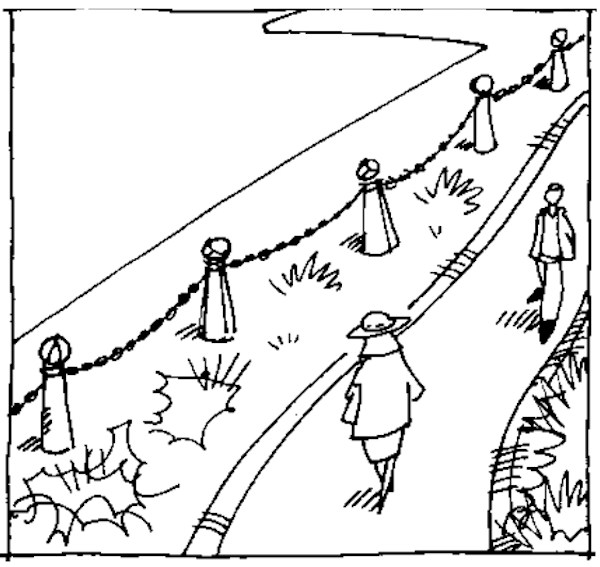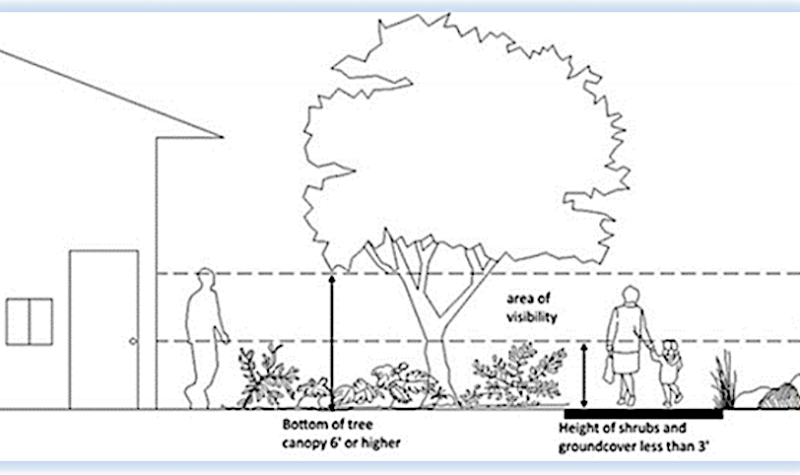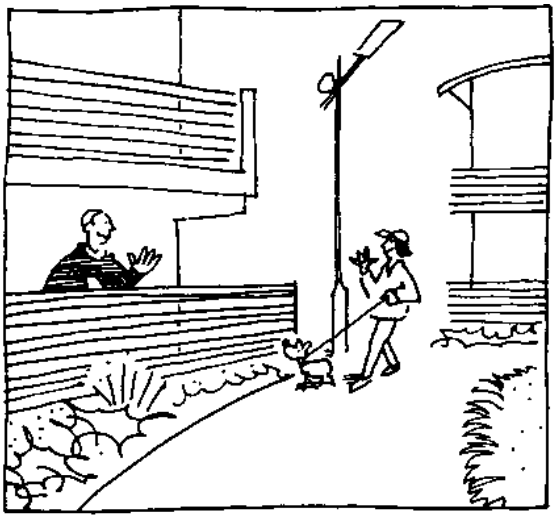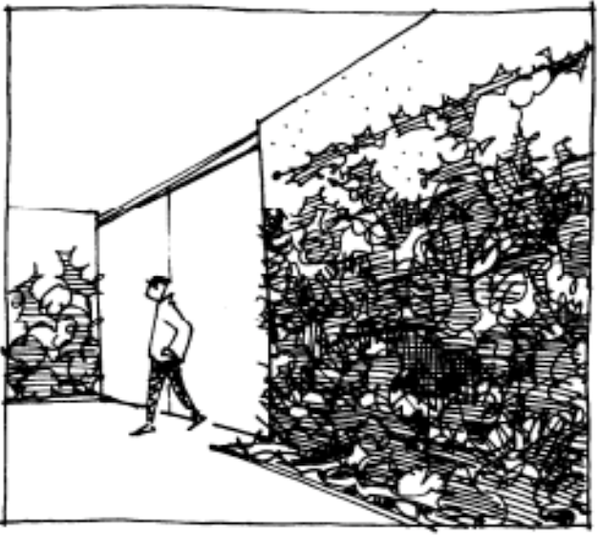By Roy L Hales
Though the City of Campbell River wants to cut $1.5 million from its budget, reducing crime and enhancing public spaces in the downtown area is still a top priority. So at their November 2nd meeting, Council set aside $25,000 from the contingency fund to start a downtown Crime Prevention Through Environmental Design (CPTED) program.
CPTED principles
CPTED design principles have been embraced by cities around the world.

Space management – City of Penrith
“The design of buildings and public spaces has an impact on perceptions of safety and security, as well as actual opportunities for crime. When development is appropriately designed, it can reduce the likelihood of crimes being committed.”
“There are four main principles of CPTED– natural surveillance, access control, territorial reinforcement and space management. Incorporating these four principles of CPTED can help to create a safe and secure environment that encourages activity, vitality and viability, enabling a greater level of security. They can also assist in minimizing the incidence of crime and contribute to perceptions of increased public safety.” – City of Penrith, Australia.
CPTED at City Hall
Some of the recent changes in the landscaping and exterior lighting at City Hall embrace CPTED design principles.
The City’s Director of Planning, Peter Wipper, said that it is no longer easy for criminal activity to occur on the property.
“We thought it would also be valuable to offer this kind of service to the downtown community,” said Wipper.
Cost to the taxpayer
At the Council meeting, staff indicated they have already received a couple of inquiries asking whether this program is going ahead and, if so, how can it be accessed.
Given the fact it is already November and the CPTED program is just being set up, they do not expect all $25,000 to be used this year.
“I see this gaining momentum as more people become aware of this opportunity. So I certainly think this is the right time to start moving out into the community and formalizing that we have funding in place,” said Councillor Colleen Evans.
“Council recognized the importance of this program and they have reinstated $25,000 until the end of the year and have also budgeted $50,000 or so for next year,” said Wipper.
What the grants are for
He explained, “The program is designed so that a property owner can obtain the services of a consultant and the city would pay up to 50% of the cost of that assessment up to $5,000. In addition, the city would also provide matching funding up to $10,000 for property improvements.”





